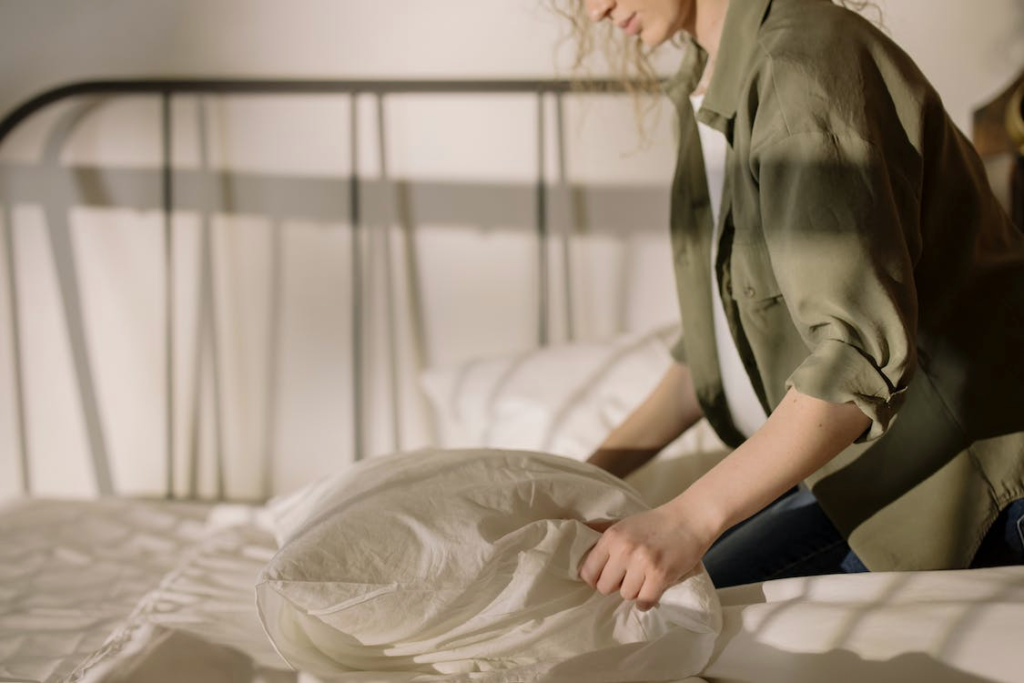
Making your bed in the morning is a no-go
If you are fond of cleaning (yes, those people exist), you might have come across Mrs D’s cleaning reviews. Her Instagram account is filled with informative tips and tricks on cleaning all sorts of things found in a household. She tells her 108 thousand followers how to maintain a clean and healthy home, as well as busting old cleaning myths and wives’ tales. One of which was whether or not making your bed when you wake up is a good habit or a bad one.

Contrary to popular belief, making your bed in the morning is a bad habit. Now, you might be thinking to yourself, how can that be? Has my whole life been a lie? Well, not to be dramatic, but According to Mrs D’s we should be letting our bed breathe. “It seems a lot of people get up and make the bed straight away. This is something you need to stop doing,” wrote Mrs D in an Instagram post. “Get out of bed and throw the duvet back and let your bed breathe.”
This is because we tend to sweat and shed dead skin during the night. “During the night we not only sweat but we also shed skin, and this is a magnet for dust mites and bed bugs,” says Mrs. D’s. “But this isn’t true. With central heating being on in the winter it can attract dust mites/bed bugs just as much as in the summer months.
Scientists confirm
According to BBC news, Dr. Steven Pretlove, a researcher conducted a study on making beds. He confirms Mrs D’s cleaning tips, and says that making your bed in the morning is a magnet for dust mites. “We know that mites can only survive by taking in water from the atmosphere using small glands on the outside of their body,” he said. “Something as simple as leaving a bed unmade during the day can remove moisture from the sheets and mattress so the mites will dehydrate and eventually die.”

Dust mites thrive inside dark and humid places. It gives a whole other meaning to the phrase, “freshly made bed,” because there could be up to 1,5 million dust mites loving their snug home within your neat bed. Dr. Matt Hallsworth says those dust mites also have an impact on those with asthma. “House-dust mite allergen can be an important trigger for many people with asthma, but is notoriously difficult to avoid,” he said.
Let it breathe
Keeping your bed a healthy safe haven could be as easy as not making your bed, or delaying when you do. If you simply cannot have a scruffy-looking bed, you could try folding your blankets so that the underside of the duvet is open to sunlight and fresh air. That will help dry out your sweat, and the dust mites will die.
Ultimately, we should be letting our beds dry out for an hour each morning before we make it. Mrs D’s gave a full explanation of what you should be doing when it comes to making your bed, and cleaning it.
Wash your sheets once a week, using a high wash cycle and a laundry cleanser, this will kill any bacteria on your bedding,” she explained. “Once a month, deep clean your mattress by vacuuming it and then using a steam cleaner to kill all bacteria and dust mites. Wash your duvets and pillows every 6 months. If you can fit them in your own washing machine then take them to the launderette. Most launderettes offer a duvet cleaning service.”
